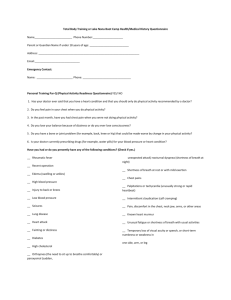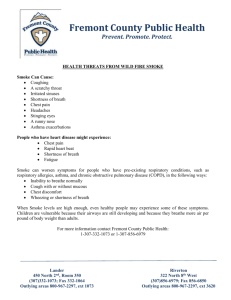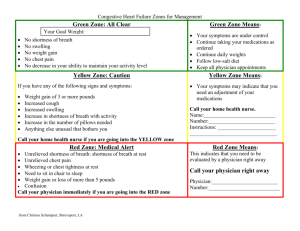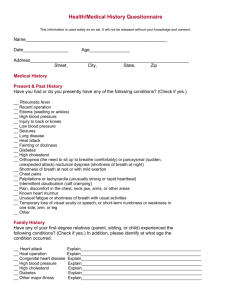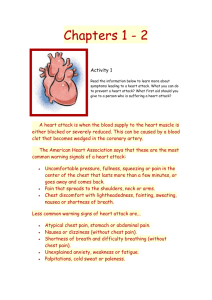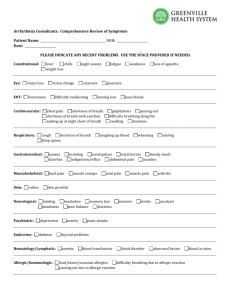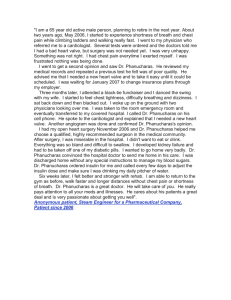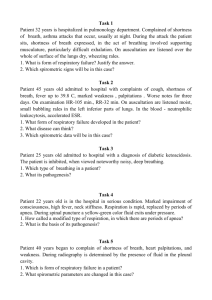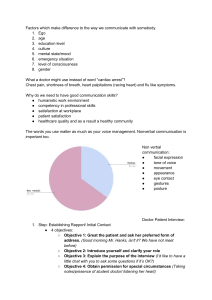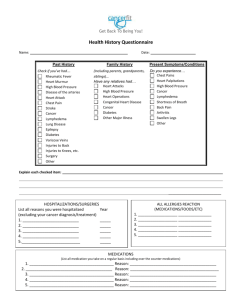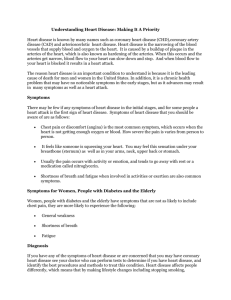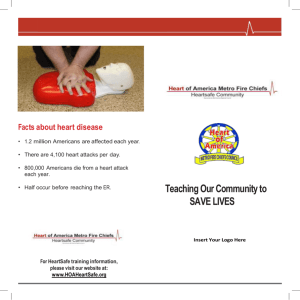Symptoms of Heart Diseases
advertisement
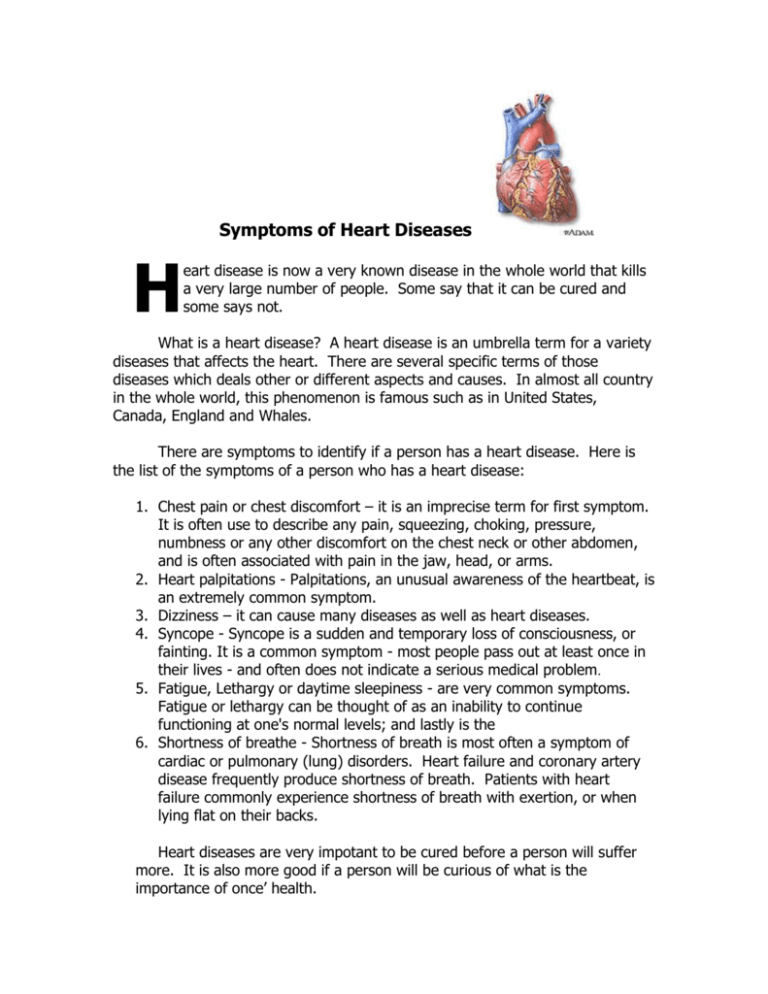
Symptoms of Heart Diseases H eart disease is now a very known disease in the whole world that kills a very large number of people. Some say that it can be cured and some says not. What is a heart disease? A heart disease is an umbrella term for a variety diseases that affects the heart. There are several specific terms of those diseases which deals other or different aspects and causes. In almost all country in the whole world, this phenomenon is famous such as in United States, Canada, England and Whales. There are symptoms to identify if a person has a heart disease. Here is the list of the symptoms of a person who has a heart disease: 1. Chest pain or chest discomfort – it is an imprecise term for first symptom. It is often use to describe any pain, squeezing, choking, pressure, numbness or any other discomfort on the chest neck or other abdomen, and is often associated with pain in the jaw, head, or arms. 2. Heart palpitations - Palpitations, an unusual awareness of the heartbeat, is an extremely common symptom. 3. Dizziness – it can cause many diseases as well as heart diseases. 4. Syncope - Syncope is a sudden and temporary loss of consciousness, or fainting. It is a common symptom - most people pass out at least once in their lives - and often does not indicate a serious medical problem. 5. Fatigue, Lethargy or daytime sleepiness - are very common symptoms. Fatigue or lethargy can be thought of as an inability to continue functioning at one's normal levels; and lastly is the 6. Shortness of breathe - Shortness of breath is most often a symptom of cardiac or pulmonary (lung) disorders. Heart failure and coronary artery disease frequently produce shortness of breath. Patients with heart failure commonly experience shortness of breath with exertion, or when lying flat on their backs. Heart diseases are very impotant to be cured before a person will suffer more. It is also more good if a person will be curious of what is the importance of once’ health.
